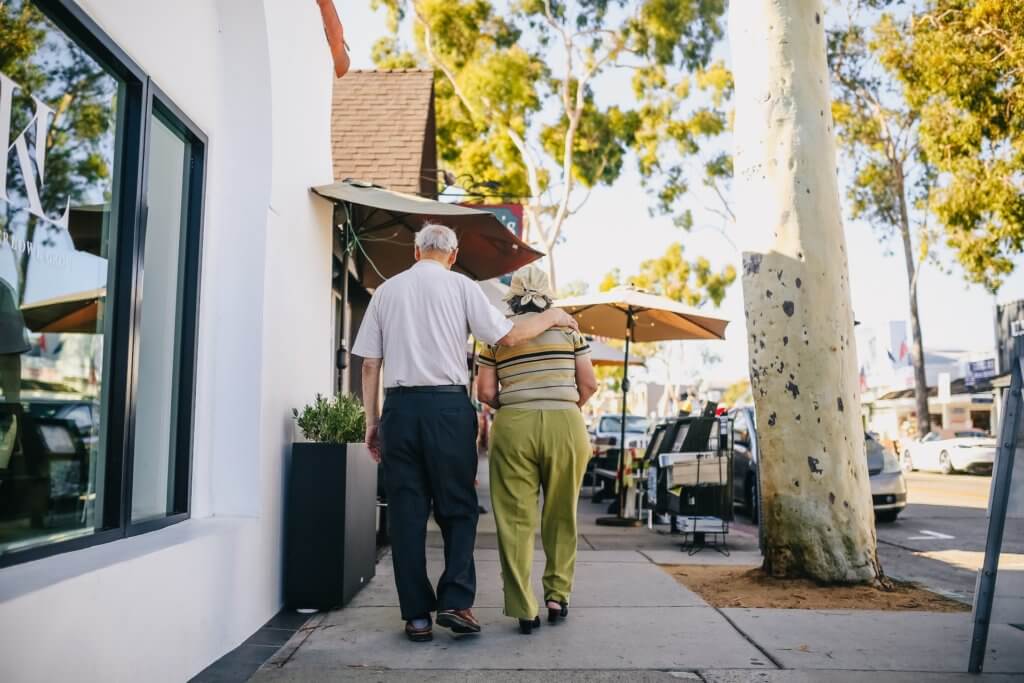LIMERICK, Ireland — There are some days when many of us just want to stay in bed from morning to night or remain glued to the couch indefinitely. While lounging can certainly be a good time every once in a while, researchers from the University of Limerick have uncovered yet another reason for everyone to prioritize a little bit of movement — especially older individuals. Their study finds modest amounts of physical activity each day can reduce the risk of depression.
This research, conducted in collaboration with Trinity College Dublin, reports that a “dose” equal to just 20 minutes per day (for five days a week) of moderate-intensity physical activity (brisk walking, for example) displayed an association to less risk of depressive symptoms and chances of major depression.
Depression, of course, is an increasingly common condition among older adults. Meanwhile, depression is also linked to a host of significant risk factors for major chronic conditions like cognitive decline, cardiovascular disease, chronic pain, and even an increased risk of death and suicide.
All in all, estimates show that depression causes around five to 10 percent of the burden of all diseases in Europe. Meanwhile, the economic cost of depression in the United States alone is approximately more than $210.5 billion! Therefore, zeroing in on potentially easy and low-cost health and lifestyle solutions that could reduce the risk of depression is a top priority for scientists and doctors alike.

Recent studies have concluded that moderate-to-vigorous physical activity (MVPA) can benefit those at risk for depression.
“However, there is no agreement on how much physical activity is protective for depression overall, or how this may vary among adults with disease,” says Dr. Eamon Laird, lead author on the paper and a post-doctoral researcher in the Department of Physical Education and Sport Sciences at UL, in a university release.
“For this work, we used 10 years of data from the Irish Longitudinal Study On Ageing which included information on depression, MVPA, and other key health-related variables such as disease, lifestyle factors and socio-economic status.”
“We sought to identify the lowest dose of MVPA associated with protection against Major Depression and depressive symptoms and the extent to which this varied based on the presence of chronic disease,” Dr. Laird continues.
Additional key findings reported by researchers:
- A physical activity dose equivalent to roughly 20 minutes daily of MVPA (brisk walking) for five days weekly was associated with a 16-percent lower rate of depressive symptoms and 43 percent lower odds of Major Depression.
- Researchers noted a dose-response effect; more MVPA led to greater protection from depression.
- More specifically, doses equivalent to ~30 minutes a day of MVPA had an association with a seven-percent lower risk of depressive symptoms and 44 percent lower odds of Major Depression.
- Doses equal to ~60 minutes a day of MVPA were associated with a 16-percent lower risk of depressive symptoms and 41 percent lower odds of Major Depression.
- Doses equal to ~120 minutes a day of MVPA were associated with a 23-percent lower chance of depressive symptoms and 49 percent lower odds of Major Depression.
- All of these findings remained significant even after study authors controlled for relevant health-related factors like biological sex, education, age, smoking and alcohol habits, obesity, antidepressant use and time.
- Findings were materially the same for older adults – both with and without a chronic illness.

– stock.adobe.com)
“This study is very relevant given the high prevalence of depression in our increasing older adult population. Physical activity at lower doses than World Health Organization recommendations for overall health may offer protection against depressive symptoms and Major Depression – at minimum, try to engage in 20 minutes a day of moderate-intensity activity at least five days per week, with more benefits seen at higher doses,” Dr. Laird reports.
“Try and build it into a routine with hobbies or activities you enjoy and trying to do it with others as social interactions particularly with activity can also have mental health benefits. Remember that it is one component, and that nutrition and healthy lifestyle will also give additive benefits in addition to the physical activity.”
“The current findings have significant implications in highlighting that significant antidepressant benefits appear to be associated with doses of physical activity that are lower than current World Health Organization recommendations for overall health, though greater doses were associated with stronger protection,” concludes Dr. Matthew Herring, a Senior Lecturer and Investigator in the Physical Activity for Health Research Centre at UL and Principal Investigator of this HRB-funded research.
“We are clearly not advocating for lower physical activity among the older adult population, but findings suggest that the largest improvements in protection against depression among older adults may be made by engaging inactive older adults in physical activity even at doses below those recommended for overall health.”
The study is published in JAMA.


Think these “Irish” scientists left out the MOST important point….
Everyone who was studied had a PINT in their hand while walking — CHEERS !
Planet Fitness works for me. Go with a friend every day. Make new friends there.